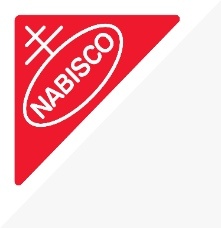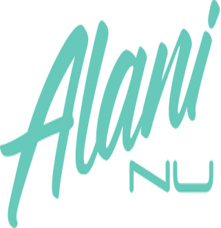Nabisco
We specialize in wholesale and distribution of all Nabisco products. Nabisco produces around 320 million pounds of food annually. Popular items include Chips Ahoy!, Belvita, Oreo cookies, Ritz Crackers, Teddy Grahams, Triscuit Crackers, Fig Newtons, and Wheat Thins.
Nabisco: A Historic American Food Company
Nabisco, originally known as the National Biscuit Company, is one of the oldest and most iconic food companies in the United States, specializing in cookies and crackers. Founded in 1898, it was created through the consolidation of several bakeries and quickly grew to dominate the American biscuit and cracker market.
Origins and Early Growth
National Biscuit Company was formed in 1898 by merging the Midwestern American Biscuit Company, which itself was a combination of 40 bakeries, and the eastern New York Biscuit Company, made up of eight bakeries and the United States Baking Company. This consolidation gave Nabisco a near-monopoly on cookie and cracker production in the U.S. early in the 20th century.
The company introduced many products that became household staples, including Oreos, Fig Newtons, and Premium Saltines. Nabisco’s name, originally referred to as N.B.C., officially changed to Nabisco in 1971.
Expansion and Mergers
Throughout the 20th century, Nabisco expanded aggressively through acquisitions, buying several bakeries and food companies internationally, entering new markets, and diversifying its product line.
In 1981, Nabisco merged with Standard Brands, a large maker of nut and candy products like Planters Nuts and Butterfinger candy bars. This merger turned Nabisco into one of the largest snack food producers.
The RJR Nabisco Era and Leveraged Buyout
In 1985, Nabisco merged with R. J. Reynolds Tobacco Company, forming RJR Nabisco. This conglomerate combined tobacco and food products but faced challenges typical of diversified companies.
In 1988, RJR Nabisco was purchased by Kohlberg Kravis Roberts & Co. (KKR) in what was then the largest leveraged buyout (LBO) in history, worth approximately $25 billion. This intense and bitter takeover battle was chronicled in the book and HBO film “Barbarians at the Gate.”
After the LBO, the company focused on restructuring assets and divesting various divisions to manage debt, including selling off parts of its international operations, beverage brands, and other subsidiaries.
Transition to Modern Ownership
In 1999 and 2000, the tobacco and food businesses separated, and Nabisco became an independent food company again. Soon after, it was acquired by Philip Morris Companies (now Altria Group), which also owned Kraft Foods. Eventually, Nabisco was integrated into Kraft Foods.
Today, Nabisco operates under Mondelēz International, one of the largest global snack companies. Nabisco remains a leader in cookies and crackers, producing iconic brands like Oreo, Chips Ahoy!, and Ritz.
Why Choose Nabisco?
Nabisco has a deep heritage of producing trusted, beloved snacks with consistent quality and innovation. Its products have been staples in American households for over a century, offering a wide variety of delicious options that cater to different tastes and occasions. From classic Oreos to savory crackers, Nabisco blends tradition and modern snacking trends to remain a top choice worldwide.
Be the first to review “Nabisco” Cancel reply
Related products
Chocolate





Reviews
There are no reviews yet.